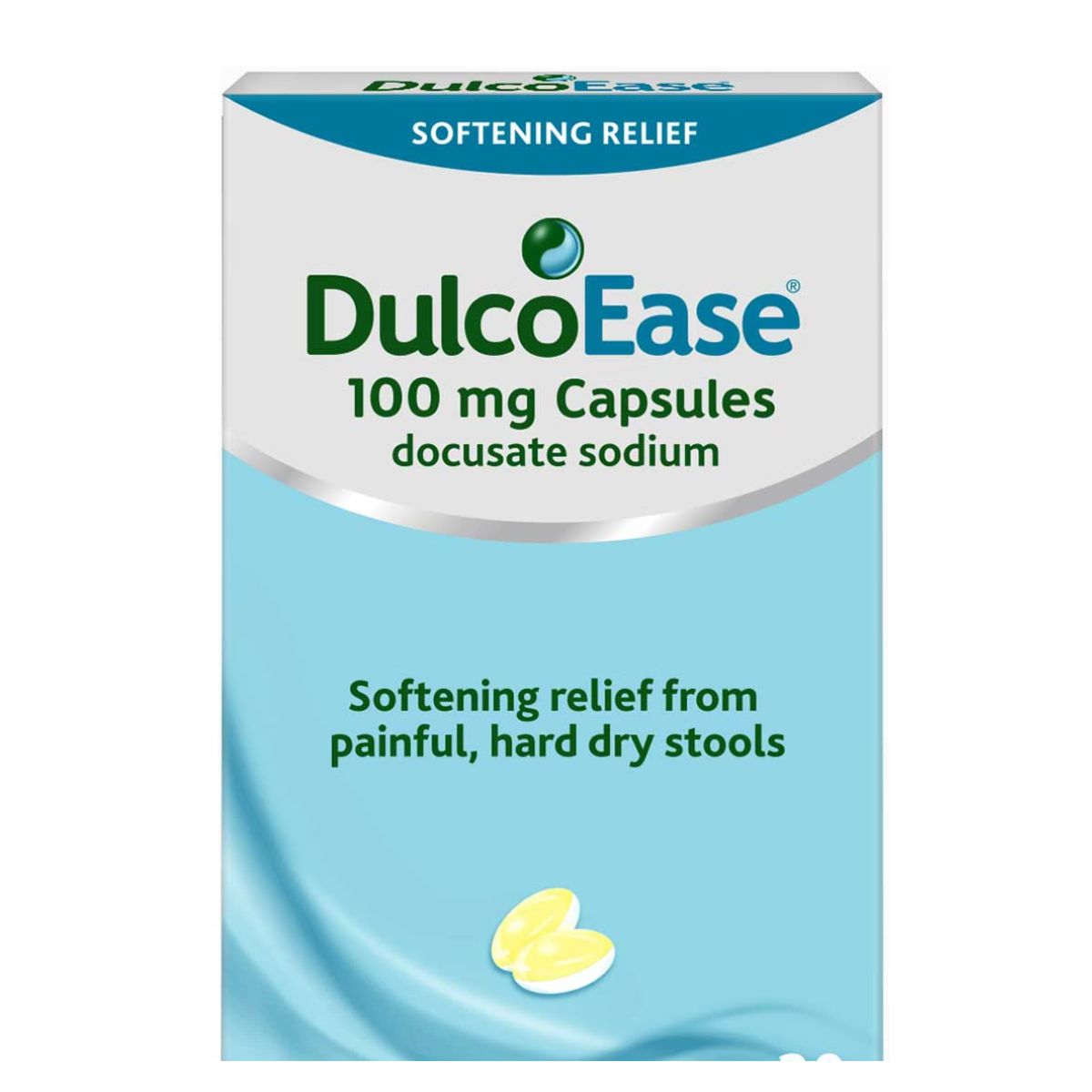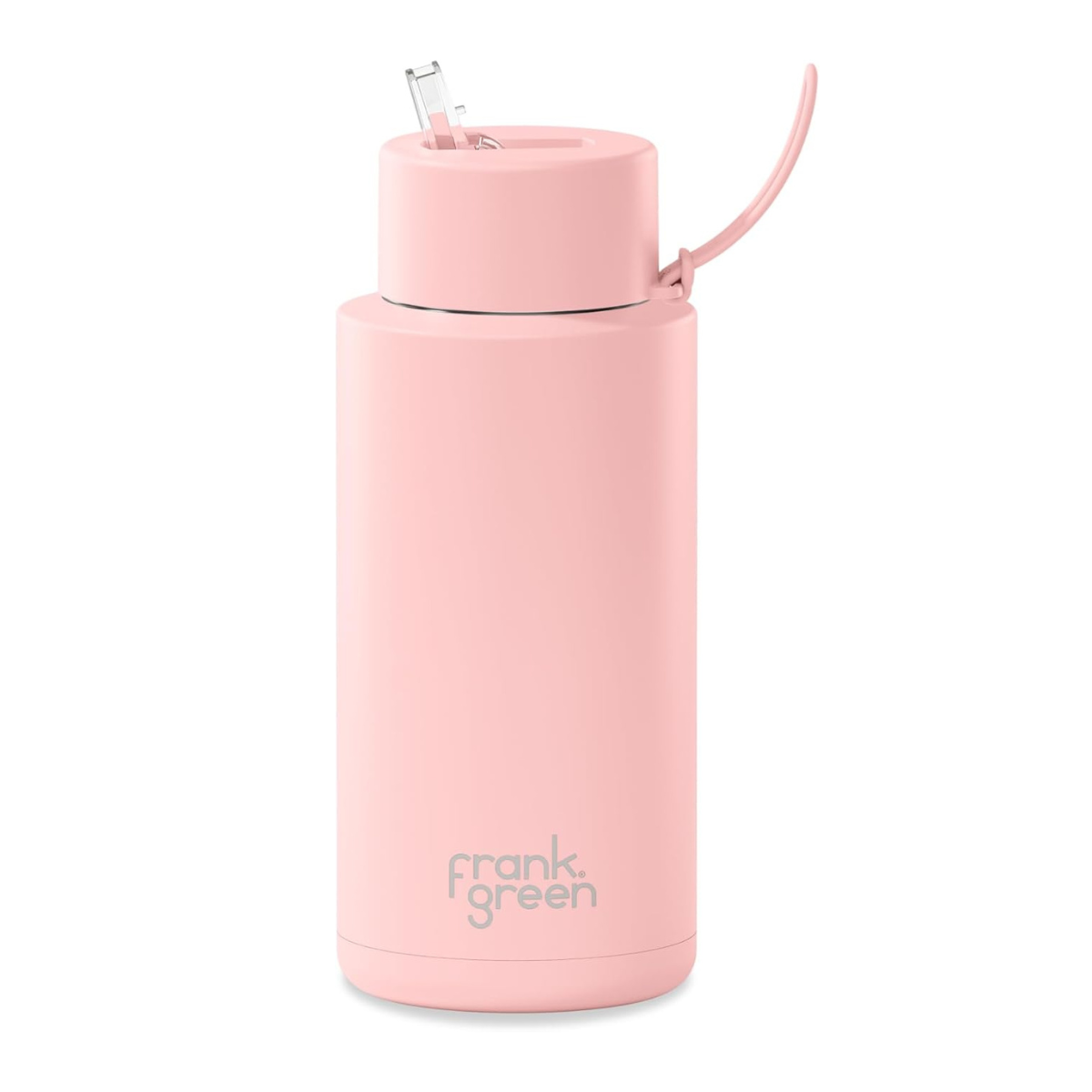I've Suffered From Chronic Constipation My Entire Life – but These Simple Tweaks Finally Made Me Regular
Holly Brooke shares her lifelong journey - from diagnosis to a godsend of a cure.


I'm willing to bet that constipation is something every one of us has dealt with at some point in our lives, but the reluctance to talk about bowel movements remains strong. However, it's far more common than most of us realise, and can have some devastating effects.
"Constipation is very common, affecting around one in seven adults in the UK at any given time," says Dr Anisha Patel, GP and bowel cancer survivor and educator. "It’s more frequent in women than men, and tends to become more common with age. Studies suggest that up to a third of adults over 60 experience constipation regularly, while younger women often notice it around menstrual cycles, pregnancy, or menopause due to hormonal changes."
A word of warning, however: "Although occasional constipation is normal, persistent constipation (lasting more than three weeks) should always be checked by a GP to exclude any underlying causes such as thyroid problems, medication side effects, or bowel conditions," says Dr Patel.
Someone who struggled with constipation is Holly Brooke, who was impacted so heavily by her experience that she decided to create a supplement with the aim of easing constipation and its symptoms. This is where WE ARE. REGULAR was born - the inspiration and process for which she discusses below.
Plus, I spoke to Registered Associate Nutritionist Laura Jennings and Dr Patel about causes, symptoms, and methods of improving constipation that are easy to implement for anyone having difficulty.
And if you've found yourself with other queries - like how to boost gut health, whether you should take probiotics, or even which foods cause bloating, be sure to check out our other expert-led guides.
Struggling with regularity? Your guide to the best constipation treatments
What are the common causes of constipation?
"Constipation is incredibly common and can affect anyone at any age. It occurs when the bowel doesn’t move as frequently or as easily as it should," explains Dr Patel. "Common causes include low fibre intake (96% of the UK population are eating the recommended 30g of fibre a day), not drinking enough fluids, a sedentary lifestyle, and ignoring the urge to open your bowels.
Celebrity news, beauty, fashion advice, and fascinating features, delivered straight to your inbox!
"It can also be linked to stress, changes in routine (such as travel), or hormonal fluctuations, for example, around menstruation, pregnancy, or menopause. Certain medications (like iron tablets, painkillers, antacids, or antidepressants) and underlying medical conditions (such as thyroid problems, Parkinson's, diabetes or irritable bowel syndrome) can also contribute."
What are the symptoms to look out for?
Symptoms of constipation typically include "infrequent bowel movements (fewer than three times per week), straining, passing hard or lumpy / peels-like or rabbit dropping-like stools, or feeling that your bowel hasn’t emptied completely," says Dr Patel. "You might also experience bloating, abdominal discomfort, or a general sense of sluggishness.
"However, if constipation lasts more than three weeks, or if it’s associated with unexplained weight loss, unexplained fatigue, tummy pains, blood in your stool, or a change in your normal bowel pattern, it’s essential to see your GP to rule out anything more serious."
When it comes to a gut-related problem that could be triggering your constipation, nutritionist Jennings notes the slightly different warning signs to be aware of. "Two evidence-based red flags to watch for are blood in your stool (red or black/tarry) and unintentional weight loss, both of which warrant prompt medical review.
"Also see your GP if you have a new, persistent change in bowel habit (constipation, diarrhoea, or alternating) lasting more than three to four weeks, night-time gut symptoms that wake you, or signs of anaemia (marked fatigue, dizziness, pallor). Severe or ongoing abdominal pain, fever, or vomiting are additional reasons to seek urgent care. Persistent bloating is also a sign that there might be some dysbiosis (imbalance in gut microbes where unfavourable bacteria outweigh beneficial bacteria)," she explains.
Where to start with treating constipation
"Once any underlying causes have been excluded, the foundation of managing constipation lies in lifestyle and dietary changes," says Dr Patel. Jennings agrees, noting it is a good idea to "raise fibre slowly. Build toward 25 to 30 g/day from foods (oats/whole grains, beans/lentils, veg, fruit, nuts/seeds). Increase over one to two weeks to reduce gas and bloating," she says.
Both note the importance of drinking plenty of fluids and staying active. "Move after meals," says Jennings. "A five to ten-minute walk after breakfast and dinner boosts colonic motility. Aim for daily activity overall."
Finally, both Dr Patel and Jennings recommend creating a regular toilet routine. "Sit after breakfast (gastro-colic reflex is strongest), don’t ignore the urge, and use a footstool to straighten the anorectal angle - less straining, easier passage," says Jennings.
"If these measures don’t help, fibre supplements, stool softeners, or gentle laxatives can be used," says Dr Patel.
@eunoiawellness_ For the love of god do not drink Metamucil to fix this problem! Eat these foods for constipation relief before you ever try that! ❤️ if you want to transform your gut in the next 8 weeks, come join me inside the Candida Fix ❤️
♬ original sound - Chloe🍋Registered Nutritionist
My journey with chronic constipation
I spent my entire adult life in and out of doctors surgeries
I’ve never wanted to be "normal" more than I have with my bowel habits. I remember visiting a GP at 18 when I finally plucked up the courage to speak to someone. I spent my entire adult life being in and out of doctors, specialists, trying every test imaginable, every diet imaginable - whether it be FODMAP or excluding gluten and dairy - stool tests, blood tests, supplements. You name it, I've tried it.
I spent a lot of my life being told I had IBS, but with little explanation as to what that meant. I was the girl who pooed once a week at best, and once, I went two weeks without any bowel movement. It was debilitating.
Often, on a Friday evening at 6 pm, when I was clearly relaxing for the weekend, I would poo. Yet despite all of the tests, no one was able to give me answers. It was evident I just had a slow-moving gut; your gut-brain connection is so strong, and for me, stress was a big contributor to my constipation. I did all the things you’re meant to, plenty of water, fibre, exercise, fruit and vegetables - I lived a healthy lifestyle, but nothing really got things moving.
When I finally became regular, I felt like a cloud had lifted
The biggest worry was being constantly told that this was "normal", and that there wasn’t a huge amount to be done about it apart from laxatives, avoiding certain foods and more kiwis (I mean, please?!). This held me back from living life to the full. I was always so envious of people with healthy bowel habits - and yep, bowel envy is a thing.
I would minimise my portions, because I was in fear of eating too much and it just sitting in my gut. The impact of toxins sitting in your gut has huge mental health impacts: the brain fog, feeling subpar, lack of energy, and mood swings. When I finally became regular, I felt like a cloud had lifted; I couldn’t get over how much better in myself I felt in so many ways.
A post shared by WE ARE. REGULAR. (@weare.regular)
A photo posted by on
My lifestyle now
That's why I decided to launch WE ARE. REGULAR. Selfishly, at the time of deciding to launch, I was taking 30 supplements a day and spending hundreds of pounds to be regular. I’d discovered a concoction of ingredients that was making me regular - Magnesium Citrate, Vitamin C, Peppermint, plus many more - but 30 supplements a day isn't sustainable or affordable.
I knew so many constipated women. Everybody has a constipated friend. Whether it is chronic constipation like my own or intermittently impacting women at certain times of their cycle or life, constipation and bloating affect us all, and I just knew I wasn’t alone. Above all, I was on a mission to just help women feel better.
Taking WE ARE. REGULAR in the morning works really well for me. I like to have a morning poo as it just sets my day off right - if there’s a day I don’t poo, I feel the impact. It’s packed full of ten good-for-you ingredients, the Vitamin C is great for energy, and the Barley Grass is what gives it that green look, but is full of fibre. I’m a huge believer in the power of antioxidants and botanicals, so no matter what, I know if I take it, I’m having a good day.
Finally, I am now a regular girl. I never thought I’d be able to say that, but pooing regularly is such a game-changer. My mood, my mental clarity, my energy - I’m no longer asking myself if I'll get caught out or need to go at an inconvenient time, because when you’re irregular, you will have to go at any given moment (even if that moment is minutes before a friend's wedding). You never know when the opportunity will come again. I’m no longer living anxiously, wondering when the next time will be, as I know it will be soon.
I have become so attuned to my body through this process. Over the years, I’ve learnt what does and doesn’t help. I avoid certain foods such as gluten and dairy as they really impact my gut motility. I take electrolytes to stay hydrated, because despite how much water you drink, sometimes it’s the absorption of it that is the problem, and electrolytes help with that. Eating as whole foods as I can, lots of fruit and vegetables and minimal fats.
We’re all different, and I’ve learnt that it takes time to listen to your body and understand what works for you.
Shop MC UK's go-to gut health products
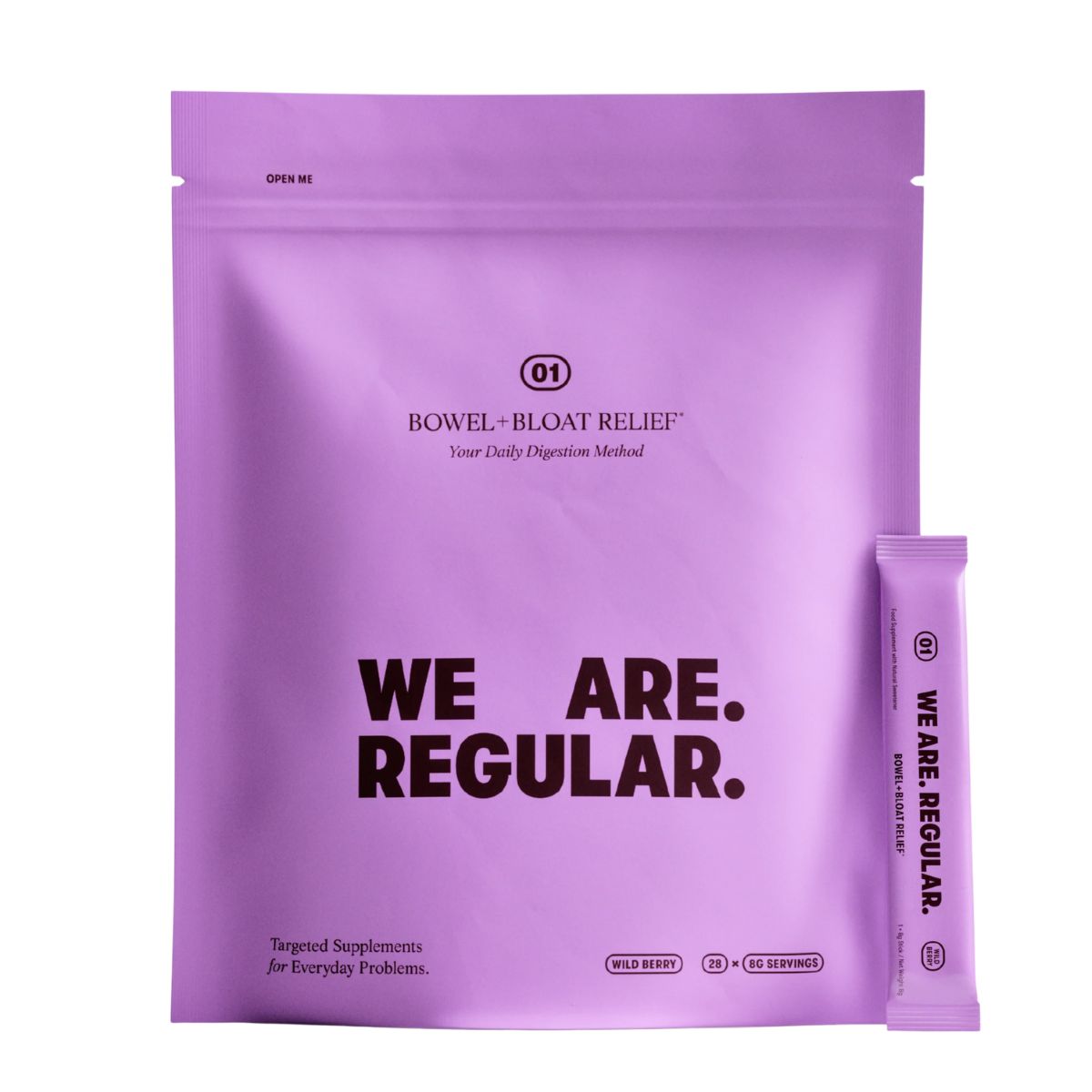
"Regular contains a combination of osmotic laxatives, gentle fibre and botanicals," explains Jennings. "Magnesium citrate is one of the key ingredients and acts as an osmotic laxative, drawing water into the bowel, softening stool and stimulating motility. Barley grass also adds some prebiotic fibre (food for our good gut bugs) and plant polyphenols, which have antioxidant and anti-inflammatory effects. Other botanicals like ginger, rosehip and amla help create a favourable microbial environment with lots of diversity, which can indirectly help comfort and regularity."
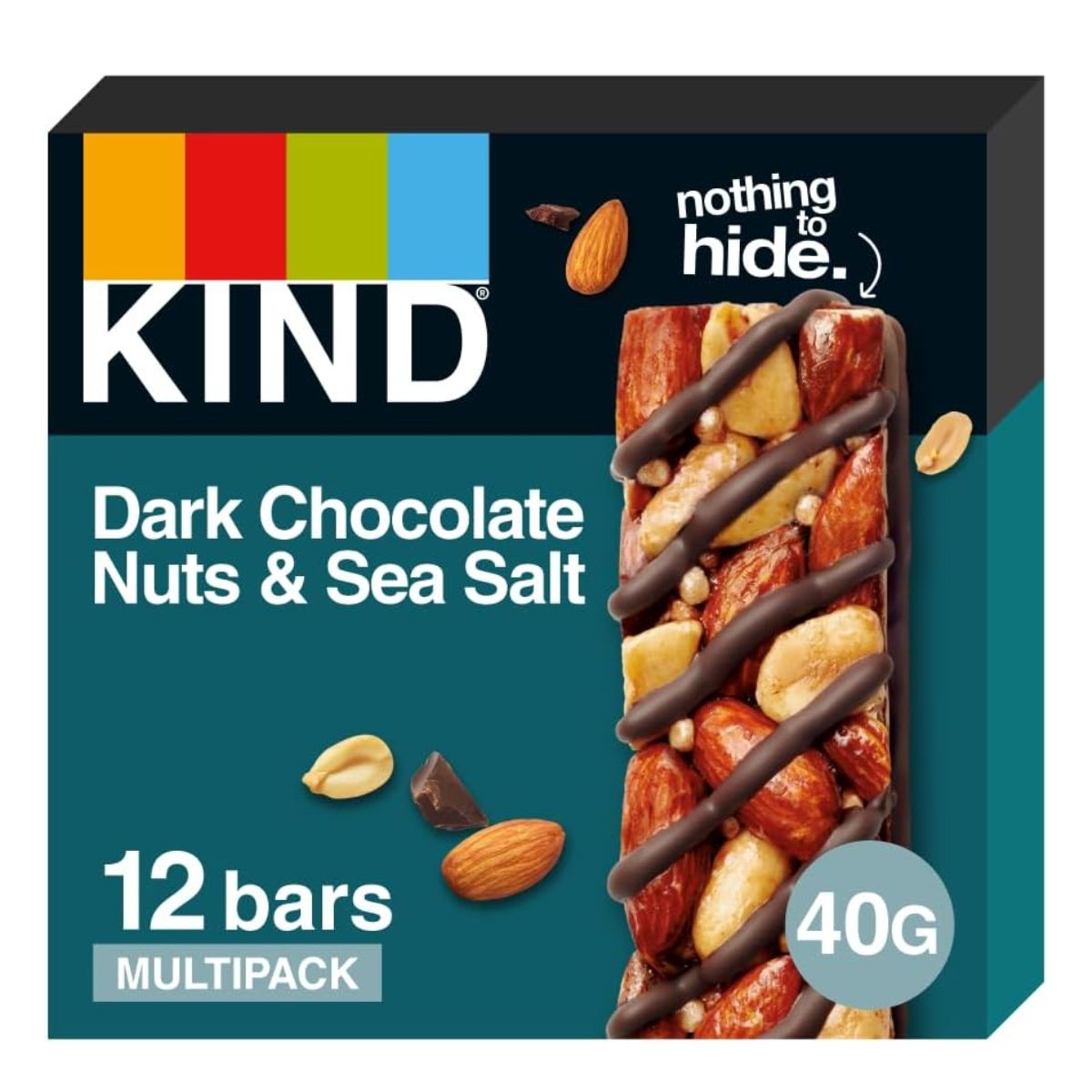
I'm a huge fan of these high-fibre snack bars. Just one of these dark chocolate and sea salt bars contains 15g of protein, and they're delicious without being too sweet or too flavourless. A great starting point for upping your fibre without drastically changing your diet.
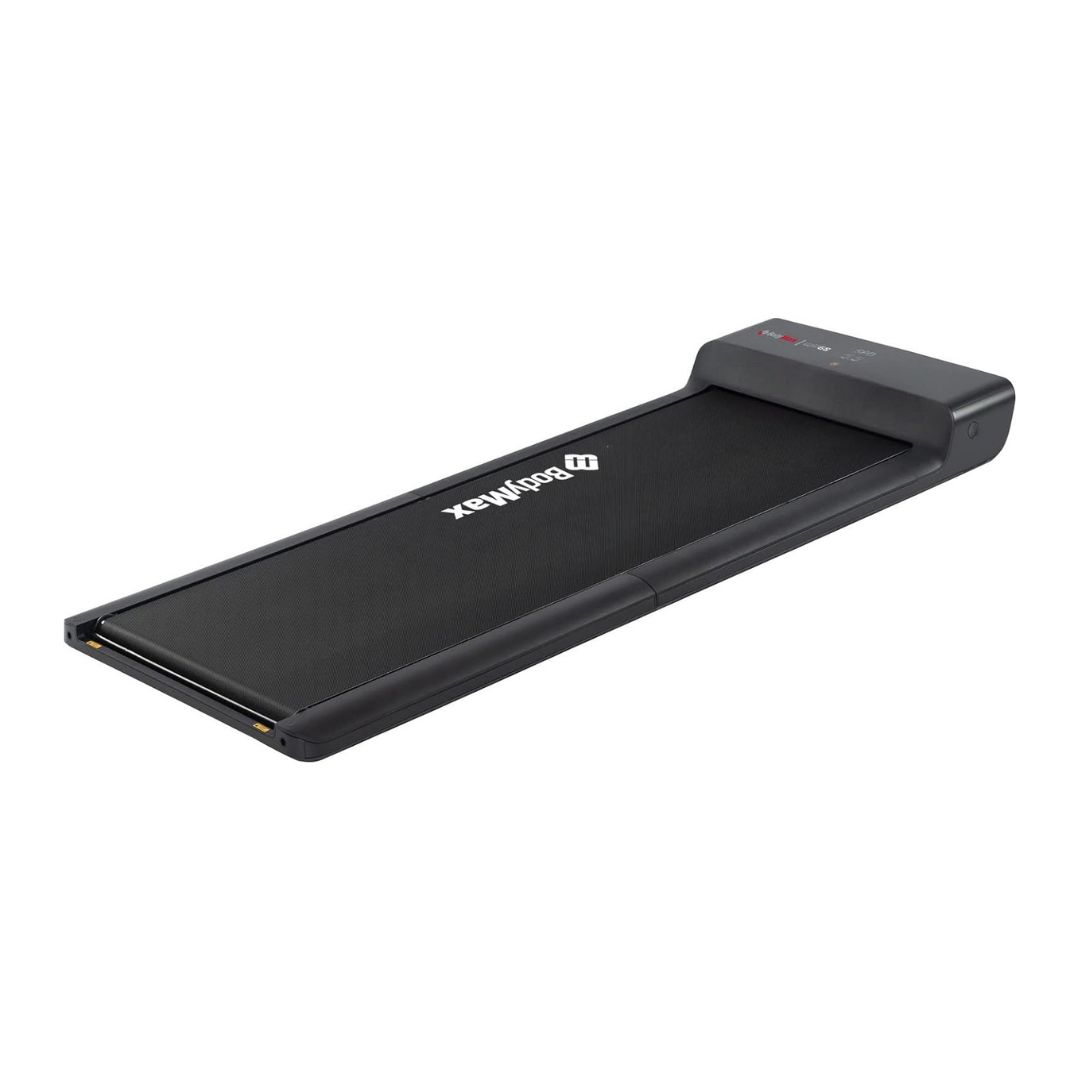
If you find it difficult to get out and about for walks, one of the best walking pads will become your best friend. Our Senior Health Editor, Ally Head, owns this particular pad and loves how easy it is to set up and get moving on.

Amelia is currently Acting Junior Shopping Editor at Marie Claire UK. With a keen eye for lifestyle trends and a focus on quality over quantity, she is very clued up on the best products and brands on the market. She previously worked as a senior writer for woman&home, covering everything from product reviews and nail art trends to reporting on fashion weeks and the best-dressed celebrities at red carpet events.
